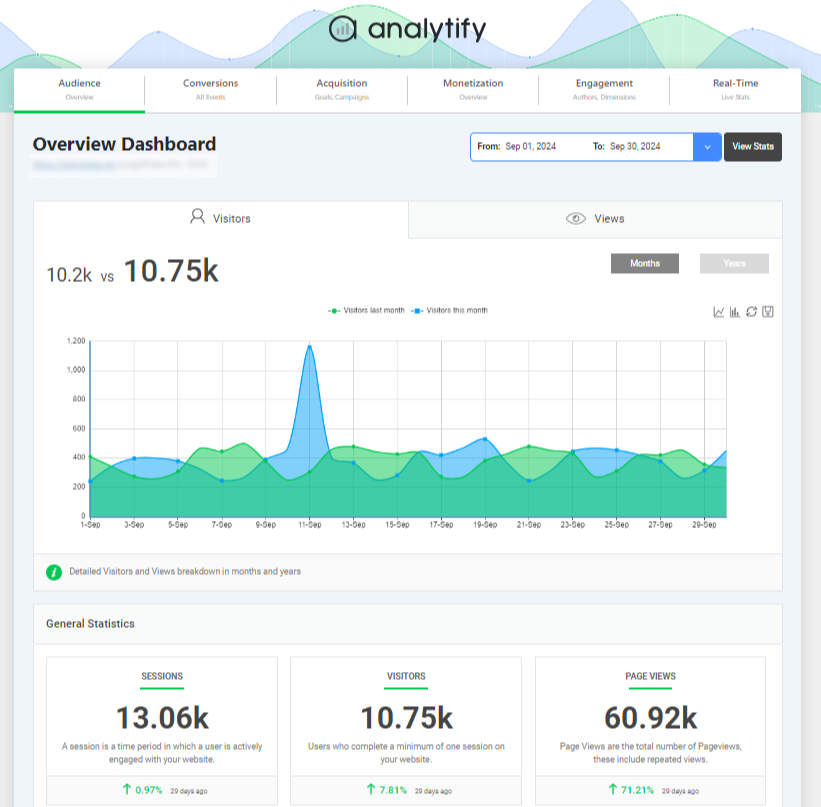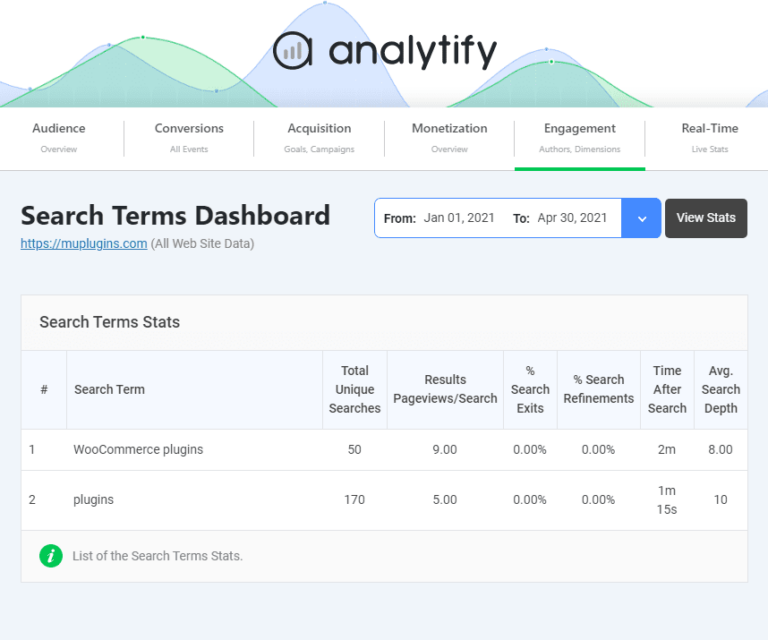
What is Topical Authority in SEO (2025)
Are you ready to boost your SEO by becoming an expert in your niche?
Establishing topical authority has become a key factor in long-term success. As search engines shift focus from keyword-based ranking to content relevance and expertise, mastering topical authority can propel your site to the top of search results.
This guide covers everything from understanding topical authority to how to build it with strategies like topical mapping and content clusters and why it’s essential for SEO success.
Let’s get started below to explore more on topical authority in SEO!
SEO Topical Authority (TOC):
What is Topical Authority?
Topical authority refers to becoming an expert on a particular subject, which makes your website a trusted source of information. When your site offers comprehensive, useful content on a specific topic, search engines are more likely to rank it higher.
For example:
If your niche is SEO to build topical authority, you need to cover everything related to SEO, such as:
- “what is SEO?”
- “how does SEO work?”
- “best SEO practices for 2024”
- “on-page vs off-page SEO”
- “how to improve website SEO”
- “how to track SEO performance”
Topical authority is achieved when a site comprehensively covers a subject from all angles rather than just targeting individual keywords. By thoroughly addressing a wide range of related topics, you signal to search engines that your site is an expert resource on SEO.
Search engines like Google notice websites that cover a broad range of subtopics within a niche. They rank such pages higher because they align with users’ searches and keep readers engaged.
A high Domain Authority (DA) score can further enhance your site’s credibility and ranking potential. While Domain Authority (DA) is not a ranking factor, a higher DA often reflects strong topical authority and backlinks, which can positively influence your search engine performance.
How Does Topical Authority in SEO Work?
Topical authority in SEO works by positioning a website as an expert in a specific subject, which in turn helps it rank higher in search results. It goes beyond focusing solely on keywords and emphasizes content relevance and comprehensiveness about user search queries.
The shift towards topical authority started with Google’s Hummingbird algorithm in 2013, which prioritized semantic search—understanding the context of a query rather than just matching keywords. Over the years, updates like Google’s Knowledge Graph, the Medic update, and the BERT model have refined this approach, emphasizing a deeper understanding of language and real-world concepts.
Topical authority is closely tied to Google’s E-E-A-T guidelines. E-E-A-T stands for Experience, Expertise, Authoritativeness, and Trustworthiness. It’s a framework Google uses to evaluate the quality and reliability of web content. Search engines aim to prioritize informative, accurate, and credible content.

While E-E-A-T isn’t a direct ranking factor, sites that demonstrate high expertise, authority, and trust are more likely to rank well.
Building topical authority involves creating high-quality, in-depth content on a specific topic and establishing your site as a subject matter expert. As Google recognizes your expertise, your content becomes more relevant, boosting search rankings.
For additional details on increasing your rankings, check out 24+ Powerful SEO Statistics to Boost Your Ranking.
Why is SEO Topical Authority Important?
SEO topical authority is important because it helps establish your website as a leading source of information on a specific subject, which can significantly enhance your search engine rankings. Here’s why it’s important:
- Enhanced Relevance and Ranking: Topical authority in SEO means your content is recognized as highly relevant to specific queries. Search engines, particularly Google, prioritize sites that offer comprehensive coverage of a topic. That improves your chances of ranking higher for relevant search terms.
- Improved User Experience: A well-defined topical map SEO helps ensure that your content covers a broad range of related subjects, providing users with a thorough understanding of the topic. This enhances user satisfaction and encourages them to spend more time on your site, signaling to search engines that your content is valuable.
- Increased Trust and Credibility: SEO that demonstrates topical authority establishes your website as an expert in a particular field. Your site consistently provides high-quality, detailed information and builds trust with users and search engines, making your pages more likely to be ranked higher.
- Competitive Edge: In competitive niches, SEO topical authority can give you an edge over rivals. While other sites may focus on general content, building strong topical authority allows you to cover specific areas in greater detail, making your site more appealing to users and search engines.
Focusing on what a topical authority in SEO helps create a well-rounded, authoritative presence on your chosen subject, ultimately enhancing your visibility and effectiveness in search engine results.
How Do You Build SEO Topical Authority?
Topical authority in SEO refers to establishing your website as a reliable and knowledgeable source on a specific topic. Here’s a 5-step guide to achieve this:
1. Define Your Niche
Pinpointing a specific area of expertise is crucial for building SEO topical authority. This step involves selecting a niche that aligns with your business goals and attracts enough search interest. Begin by assessing your business’s core competencies and areas of passion.
Example: If your agency specializes in local SEO, your focus search term could be “Local SEO Strategies.” This focuses on a specific aspect of SEO that targets those looking to improve their local search presence.
Use tools like Google Keyword Planner to gauge the search volume and competition for keywords related to your niche. This helps ensure there’s sufficient interest in the topic. And analyzes competitors to find market gaps. Ensure the niche supports your business objectives and engage with your audience to validate interest. This approach helps establish your site as a trusted authority in your field.
2. Conduct Thorough Keyword Research
Conducting thorough keyword research is a critical step in building SEO topical authority. This process helps you identify your niche’s most relevant and high-traffic keywords.
- Identify Seed Keywords: Start by brainstorming seed keywords related to your niche. For example, if your niche is “Local SEO Strategies,” some examples of seed keywords might include:
- local SEO
- local search optimization
- local SEO tips
- Use Keyword Research Tools: Utilize tools like Google Keyword Planner and Semrush Keyword Search Tool to expand your seed keywords into a comprehensive list. These tools provide data on search volume, keyword difficulty, and related terms. For instance, you might find associated keywords like “local SEO for small businesses” or “best local SEO practices.”
- Analyze Search Intent: Understand the search intent behind the keywords. Are users looking for information, services, or products? This helps you customize your content to meet their needs. For example, if users are searching for “local SEO checklist,” they are likely looking for actionable tips.
- Assess Competition: Evaluate the level of competition for each keyword. High-competition keywords may be challenging to rank for, while lower-competition keywords might offer easier opportunities. Look for keywords with a balance of reasonable search volume and manageable competition.
- Prioritize Keywords: Based on your research, prioritize keywords that align with your content strategy and business goals. Focus on a mix of high-traffic and long-tail keywords that target specific queries related to your niche.
- Monitor and Adjust: Keyword trends can change over time, so regularly monitor your keyword performance and adjust your strategy as needed. This ensures that you stay relevant and continue to attract the right audience.
By conducting thorough keyword research, you can effectively target relevant terms that enhance your topical authority and drive more traffic to your site.
3. Create Content Clusters
Building a content cluster is an essential strategy for establishing SEO topical authority. This approach involves creating a network of interlinked content around a central theme or topic. Here’s a step-by-step guide to developing a content cluster:
- Choose a Pillar Topic: Select a broad, high-level topic that serves as the central theme for your content cluster. This topic should be relevant to your niche and cover a comprehensive subject area. For example, if your niche is “Local SEO Strategies,” your pillar topic could be “Ultimate Guide to Local SEO.”
- Create Supporting Content: Develop several pieces of supporting content that explain specific aspects of the pillar topic and address various subtopics or related queries. For instance, supporting content for “Ultimate Guide to Local SEO” might include articles on “Local SEO Best Practices for Small Businesses” and “Local Citation Building Strategies.”
- Organize Content Hierarchically: Structure your content so that the pillar page is the central hub, with supporting articles linking to it. This hierarchy helps search engines understand the relationship between your content and establishes the pillar page as the authoritative source.
Looking at the “how to get into project management” example briefly, we can identify additional subtopics worth targeting:
Ensure that your supporting content links to the pillar page and to each other where relevant. Regularly update your content cluster to keep it current and relevant. Add new supporting articles as needed and refresh existing content to maintain its value. This ongoing maintenance ensures that your content cluster remains a comprehensive resource.
By building a well-organized content cluster, you enhance your topical authority, improve your site’s SEO performance, and provide a valuable resource for your audience.
4. Boost Your SEO with an Internal Linking Strategy
Boosting your SEO with an internal linking strategy involves creating a network of links within your website to enhance navigation, distribute page authority, and improve search engine rankings.
Determine which pages on your site are most important for your SEO goals. These could include high-converting landing pages, cornerstone content, or top-performing blog posts. Prioritize these pages for internal linking to help boost their authority.
Develop a clear, hierarchical site structure where pillar topic are supported by related content. When linking internally, use descriptive, keyword-rich anchor text that provides context about the linked page. Ensure that internal links point to relevant content that provides additional value or information on the topic. This keeps users engaged and encourages them to explore more of your site.
Avoid overloading any single page with too many internal links. Instead, distribute links evenly across your site to ensure a balanced link structure and prevent dilution of link equity.
Periodically review and update internal links. Another helpful tip is fixing broken links and adding new links to keep your internal linking strategy current and effective. Use tools like Google Analytics to track the performance of your internal links.
5. Effective Backlink-Building Techniques for SEO Success
Building a strong backlink profile is essential for establishing SEO topical authority. Here are key techniques to effectively acquire high-quality backlinks:
- Develop high-quality, unique content that naturally attracts backlinks. Contribute articles to reputable sites in your niche, including backlinks to your own site. Find and replace broken links on relevant sites with links to your content. Collaborate with influencers to gain backlinks from their content.
- Submit your site to relevant industry-specific directories and listings. Share valuable input in forums and social media, linking to your content when appropriate. Develop infographics and visual content that others will want to link to.
- Compile details from industry experts and encourage them to share your content. Analyze competitor backlinks to discover valuable link opportunities. These techniques help improve your site’s authority and search engine rankings.
Remember, building topical authority takes time and effort. You can establish yourself as a trusted expert by consistently creating valuable content and building relationships within your niche.
Analytify’s Role in Building Topical Authority
The right tools are crucial in building topical authority in SEO, and the Analytify plugin is an excellent addition. The Analytify plugin is a powerful WordPress tool designed to simplify the process of integrating Google Analytics into your website.
Join 50,000+ beginners & professionals who use Analytify to simplify their Google Analytics!
It provides users a user-friendly interface to access and analyze their website’s analytics data directly from the WordPress dashboard. By presenting analytics in a clear and understandable format, Analytify enables users to decide about their website’s performance and marketing strategies.
Analytify Search Term Dashboard
Analytify helps websites build topical authority by offering detailed insights through its Search Terms Dashboard. This dashboard allows you to see which search terms drive traffic to your site, helping you better understand what your audience is searching for within your niche.
Through Analytify’s Search Terms Dashboard, you can track high-traffic search terms, shifts in user intent, and trending queries within your niche. This insight lets you fine-tune your content strategy to address these evolving needs, making your site more authoritative and relevant in the eyes of both users and search engines.
Topical Authority FAQs
1. What is the difference between domain authority & topical authority?
Domain Authority: Measures a website’s overall strength and credibility across all topics.
Topical authority: Measures the website’s expertise and relevance within a specific niche or topic.
2. How does Google determine topical authority?
Google assesses topical authority by evaluating a website’s content’s depth and quality on a specific subject. It considers factors like detailed articles, relevant keywords, authoritative backlinks, and user engagement metrics such as time spent on the site.
3. Does user engagement impact topical authority?
User engagement metrics like time spent on site, bounce rate, and pages per session indicate the value of your content. High engagement can enhance your topical authority by showing that users find your content useful and relevant.
4. Can backlinks improve topical authority SEO?
Yes, backlinks from reputable, authoritative sources in your niche signal to search engines that your site is a trusted resource, which helps build topical authority.
5. How long does it take to build SEO topical authority?
Building topical authority is a long-term process that depends on consistent content creation, link building, and user engagement. It typically takes several months to see noticeable results.
Final Thoughts on SEO Topical Authority
Building topical authority in SEO is essential to establishing your site as a trusted, expert source in your niche, which boosts your search rankings and enhances user engagement. Below are key takeaways that will guide you in establishing SEO topical authority.
Key Takeaways:
- Choose a Targeted Niche
- Deep Keyword Research
- Implement Content Clustering for Improved Context
- Strengthen the Internal Linking Structure
- Establish Authority through Quality Backlinks
Focusing on SEO topical authority helps you meet Google’s standards for expertise, trustworthiness, and relevance, all while improving user experience and engagement.
Monitoring these efforts with Google Search Console Insights can offer valuable feedback on what content resonates with users and where adjustments can further strengthen your authority.
Check out our comprehensive guide on Google Search Console Insights to explore how these insights can refine your SEO strategy.
We’d love to hear your thoughts in the comments!







